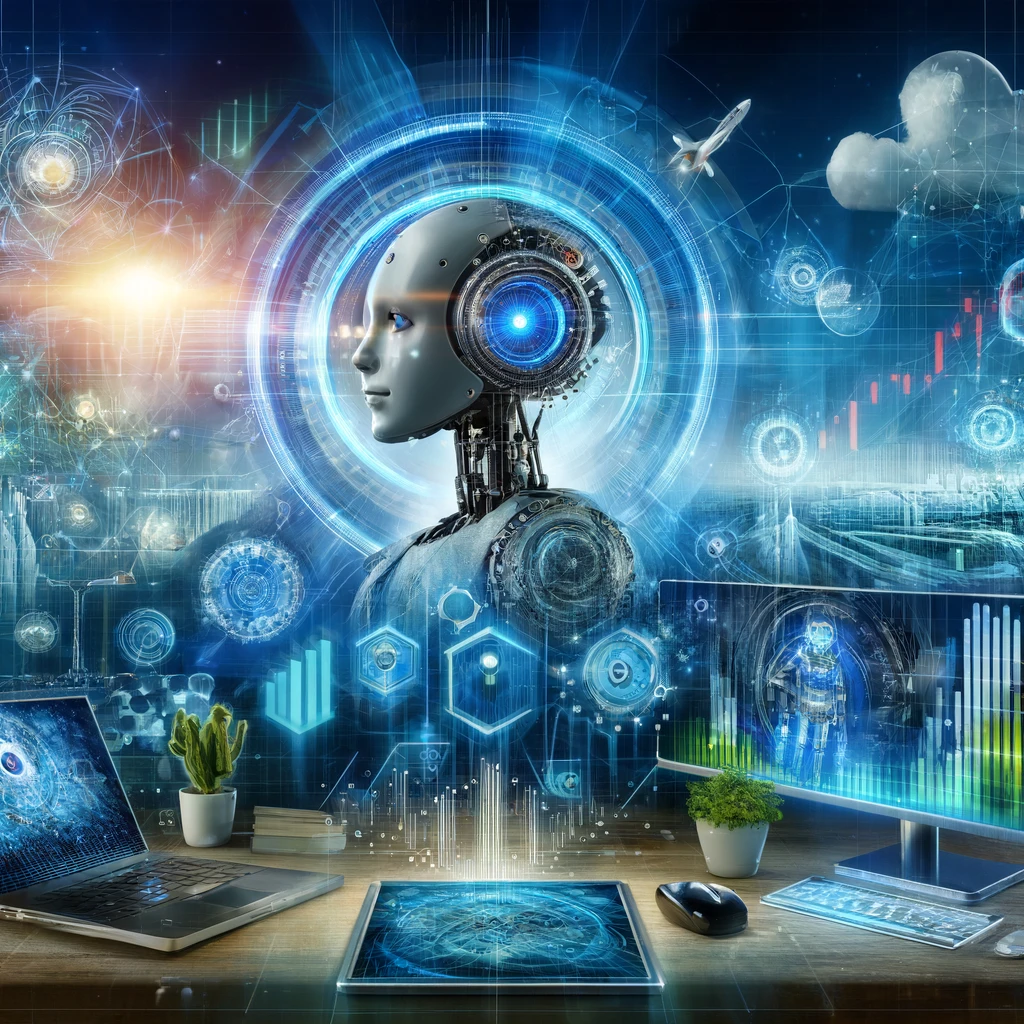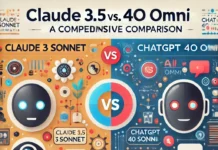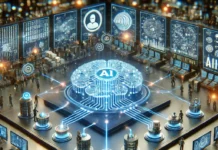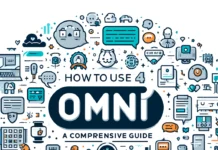AI-Powered Marketing Automation: The Future of Digital Marketing
In today’s fast-paced digital landscape, businesses are continuously seeking innovative ways to streamline their operations and enhance customer experiences. AI-powered digital marketing automation has emerged as a groundbreaking solution that revolutionizes how companies approach marketing.
This article delves into the intricacies of AI-powered marketing automation, exploring its benefits, applications, and potential impact on the future of digital marketing.
What is AI-Powered Marketing Automation?
AI-powered marketing automation refers to the use of artificial intelligence (AI) technologies to automate and optimize various marketing processes.
These technologies leverage machine learning, natural language processing, and data analytics to enhance marketing campaigns, improve customer engagement, and boost overall efficiency.
AI-driven tools can perform tasks such as customer segmentation, personalized email marketing, predictive analytics, and chatbot interactions, enabling businesses to deliver targeted and relevant marketing messages to their audience.
Benefits of AI-Powered Marketing Automation
1. Enhanced Personalization
Personalization is a key driver of customer satisfaction and loyalty. AI digital marketing automation enables businesses to deliver highly personalized experiences to their customers by analyzing their preferences, behaviors, and purchase history. [GrowthNatives]
By tailoring marketing messages and offers to individual customers, businesses can create more meaningful connections and increase customer retention.
2. Improved Efficiency and Productivity
Automating repetitive marketing tasks, such as email campaigns and social media posting, frees up valuable time for marketers to focus on strategic planning and creative initiatives.
AI-powered tools can handle tasks that would typically require manual intervention, allowing marketing teams to operate more efficiently and productively.
3. Data-Driven Decision Making
AI marketing automation tools analyze vast amounts of data to provide actionable insights and recommendations.
Marketers can leverage these insights to make informed decisions, optimize their campaigns, and achieve better results.
Data-driven decision-making enables businesses to stay agile and adapt to changing market conditions.
4. Better Customer Engagement
Effective customer engagement is crucial for building brand loyalty and driving conversions. AI-powered chatbots and virtual assistants can engage with customers in real time, answering their queries, providing product recommendations, and guiding them through the purchasing process.
These interactions enhance the customer experience and foster stronger relationships with the brand.
5. Cost Savings
By automating various marketing processes, businesses can reduce operational costs and allocate resources more efficiently. AI-powered marketing automation eliminates the need for extensive manual labor, allowing companies to achieve more with fewer resources.
This cost-saving advantage is particularly beneficial for small and medium-sized enterprises (SMEs) with limited marketing budgets.
Related Article: Top 11 Most Effective Online Marketing Strategies
Applications of AI-Powered Marketing Automation
1. AI Email Marketing Automation
Email marketing is a powerful tool for engaging with customers and driving conversions. AI-powered marketing automation enhances email campaigns by segmenting audiences, personalizing content, and optimizing send times.
These capabilities result in higher open rates, click-through rates, and overall campaign effectiveness.
2. Social Media Management
Managing social media platforms can be time-consuming and challenging. AI-powered tools simplify social media management by automating post scheduling, analyzing audience behavior, and suggesting relevant content.
These tools enable businesses to maintain a consistent social media presence and engage with their audience effectively.
3. Customer Segmentation
Understanding customer segments is essential for targeted marketing. AI-powered marketing automation tools analyze customer data to identify distinct segments based on demographics, behavior, and preferences.
This segmentation allows businesses to tailor their marketing messages and offers to specific customer groups, increasing the likelihood of conversions.
4. Predictive Analytics
Predictive analytics uses AI algorithms to forecast future customer behavior and trends. AI-powered marketing automation tools leverage predictive analytics to anticipate customer needs, optimize pricing strategies, and improve demand forecasting. [Hubspot]
These insights enable businesses to stay ahead of the competition and make proactive marketing decisions.
5. Chatbots and Virtual Assistants
Chatbots and virtual assistants powered by AI enhance customer service and engagement. These tools can handle customer inquiries, provide product recommendations, and facilitate transactions.
By offering instant and personalized support, chatbots and virtual assistants improve the customer experience and free up human resources for more complex tasks.
6. AI-Powered Marketing Content Creation and Curation
Creating and curating relevant content is crucial for attracting and retaining customers. AI-powered marketing automation tools assist in content creation by generating product descriptions, blog posts, and social media captions.
These tools also curate content from various sources, ensuring that businesses consistently provide valuable information to their audience.
Related Articles:
Perplexity Pages Revolutionized AI SEO Content Creation
7. Dynamic Pricing
Dynamic pricing involves adjusting prices based on demand, competition, and other factors. AI-powered marketing automation tools analyze market conditions and customer behavior to set optimal prices for products and services.
This dynamic pricing strategy maximizes revenue and ensures competitiveness in the market.
Challenges of AI-Powered Marketing Automation
1. Data Privacy and Security
AI-powered marketing automation relies heavily on customer data, raising concerns about privacy and security. Businesses must ensure that they comply with data protection regulations and implement robust security measures to protect customer information. Failure to do so can result in legal consequences and damage to the brand’s reputation.
2. Integration Complexity
Integrating AI marketing automation tools with existing systems can be complex and time-consuming. Businesses may face challenges in aligning these tools with their current infrastructure and ensuring seamless data flow.
Proper planning and technical expertise are essential for successful integration.
3. Lack of Human Touch
While automating marketing with AI enhances efficiency and personalization, it may lack the human touch that customers value. Over-reliance on AI-driven interactions can lead to impersonal and robotic customer experiences.
Businesses should balance automation with human involvement to maintain authentic and meaningful connections with their audience.
4. High Initial Investment
Implementing AI to automate marketing processes can involve significant upfront costs, especially for SMEs with limited budgets. These costs include software licensing, integration, and training expenses.
However, the long-term benefits and cost savings of AI automation often justify the initial investment.
The Future of AI-Powered Marketing Automation
The future of marketing automation looks promising, with advancements in Artificial Intelligence technologies poised to revolutionize digital marketing.
As AI continues to evolve, businesses can expect more sophisticated and intelligent tools to automate marketing processes that enhance customer experiences and drive business growth. Key trends to watch in the future include:
1. Hyper-Personalization
Hyper-personalization involves delivering highly tailored experiences to individual customers based on real-time data. Marketing automation with AI will enable businesses to achieve hyper-personalization by analyzing customer behavior, preferences, and context to deliver relevant and timely marketing messages.
2. Voice and Visual Search Optimization
Voice and visual search are gaining popularity among consumers. Marketing automation with the help of Artificial Intelligence will optimize marketing strategies for voice and visual search by analyzing search queries, understanding user intent, and delivering relevant results.
This optimization will enhance discoverability and improve customer experiences.
3. Advanced Predictive Analytics
Predictive analytics will become more sophisticated, enabling businesses to anticipate customer needs and trends with greater accuracy.
AI tools will leverage advanced predictive analytics to optimize marketing campaigns, improve demand forecasting, and enhance customer satisfaction [Hubspot]
Related Article: How to Automate Workflows with AI
4. Conversational AI
Conversational AI, such as chatbots and virtual assistants, will become more human-like and capable of handling complex interactions.
Automating Marketing will leverage conversational AI to enhance customer service, facilitate transactions, and provide personalized recommendations, creating seamless and engaging customer experiences.
Conclusion
AI-powered marketing automation is transforming the digital landscape, offering businesses innovative ways to engage with customers, improve efficiency, and drive growth.
By leveraging AI technologies, businesses can deliver personalized experiences, make data-driven decisions, and stay competitive in a dynamic market.
As Artificial Intelligence continues to advance, the future of marketing automation holds exciting possibilities, promising a new era of intelligent and customer-centric marketing.
Frequently Asked Questions:
1. What is AI-powered marketing automation?
AI-powered marketing automation uses artificial intelligence to improve and streamline marketing tasks like email campaigns, customer segmentation, and lead nurturing. It helps marketers personalize content on a large scale, analyze data for insights, and optimize strategies in real-time, leading to better efficiency, engagement, and ROI. Learn more about AI marketing automation
2. How can AI improve email marketing?
AI enhances email marketing by analyzing data like open and click-through rates to optimize future emails. It suggests the best times to send emails and can generate content and layouts tailored to specific campaign goals. This leads to highly personalized and timely messages, improving engagement and conversion rates. Explore AI in email marketing
3. What are the benefits of using AI in marketing?
Using AI in marketing offers increased personalization, cost efficiency, predictive analytics, and better ROI. AI automates repetitive tasks, analyzes customer behavior, and provides insights to tailor marketing strategies to individual needs, resulting in higher engagement and improved business outcomes. Discover the benefits of AI marketing
4. How does AI help with customer segmentation?
AI helps with customer segmentation by analyzing large datasets to find patterns and group customers based on behaviors and preferences. This dynamic segmentation allows marketers to deliver personalized content and offers to the right audience at the right time, boosting engagement and loyalty. Learn about dynamic segmentation
5. What is predictive analytics in AI marketing?
Predictive analytics uses AI to analyze current and past data to predict future customer behaviors and trends. This helps marketers anticipate needs, optimize product launches, and tailor strategies for maximum impact and ROI. Understand predictive analytics
6. How do AI-powered chatbots improve customer service?
AI-powered chatbots provide instant, 24/7 support, answering FAQs, recommending products, and processing orders. They enhance customer experience by reducing wait times and offering personalized interactions, which can increase satisfaction and loyalty. See the benefits of AI chatbots
7. What are some examples of AI in content creation?
AI in content creation generates drafts of product descriptions, emails, blog posts, and social media captions. AI tools brainstorm ideas, create personalized content, and optimize text and images for SEO, making content creation faster and more efficient. Explore AI content creation
8. How does AI optimize marketing channels?
AI optimizes marketing channels by analyzing data to identify the most effective channels for reaching the target audience. It helps allocate resources efficiently, enhance campaign performance, and maximize ROI by focusing on the channels that deliver the best results. Learn about channel optimization













